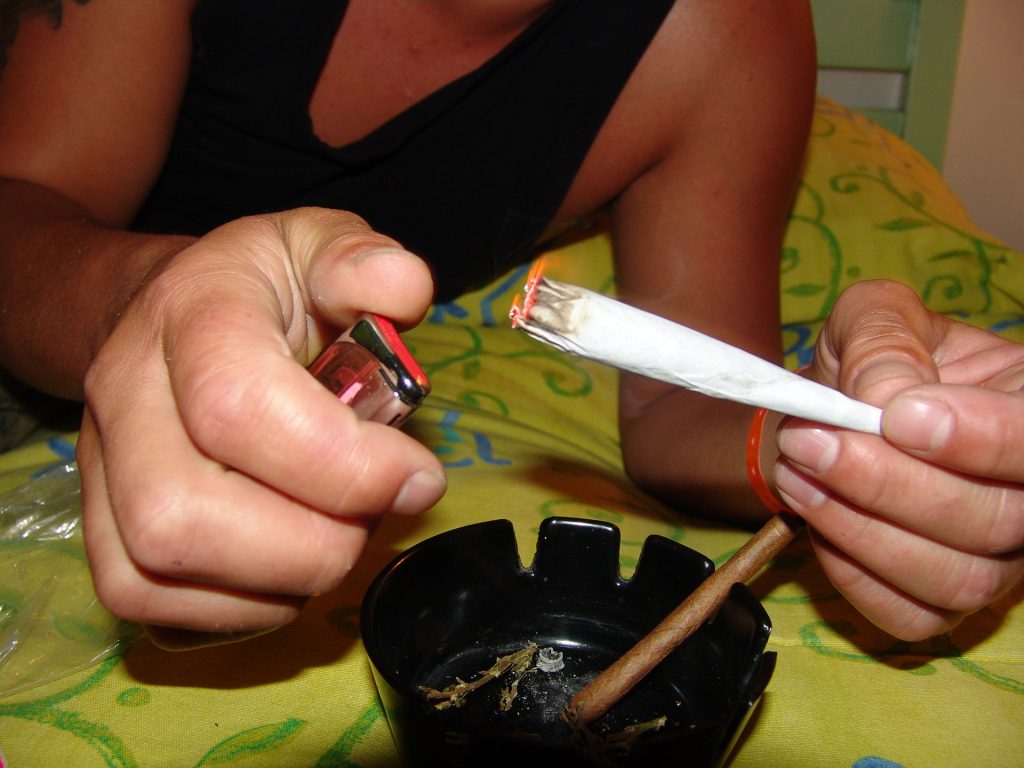Within my practice I am seeing more and more Millennials who come wanting to address mental challenges, confidence issues etc. One of the consistent threads that I hear amongst many of them is the regular use of cannabis. The reasons are normally “I’ve always smoked weed”, “It helps me and my mates relax”, “It’s not as bad as other things.” etc.
Whilst I don’t want to come across as ‘preachy’, I always remind them that any form of illicit drug comes from organised crime. That little bit of weed, pill or capsule has been produced by dangerous people that have not regard for human life. You have no way of knowing what you are taking, and it’s not like you can sue the local drug dealer. Modern drugs are more synthesised than ever before. Why? To maximise profits and get you addicted quicker.
We are only starting to understand the long term damage to the brain and body of drug consumption, and the results aren’t pretty. Cocaine is a big area for study as we can now analyse the brains of long-term users (over the last 30 years) that are now passing away due to complications.
As a good rule of thumb: if your local low-life drug dealer is offering it, it’s best to pass. Discover life through the lease of a camera, a page of a book, a fun sport, great music, or get new friends.
Comment by Mark Jones Psychotherapist
Smoking cannabis just once as a teenager is enough to alter brain structure, a new study suggests. Scientists found that taking the drug just once or twice by the age of 14 led to greater grey matter in brain areas linked to emotion and memory.
Although more brain cells might seem beneficial, in fact the developing teenage brain at this stage should be pruning cells as it prepares for adulthood, removing unwanted neural connections and allowing important links to be strengthened.
In the study greater brain volume was also associated with slightly worse IQ performance on tests.
Lead scientist Professor Hugh Garavan, from the University of Vermont, said:
“Consuming just one or two joints seems to change grey matter volumes in these young adolescents.
“The implication is that this is potentially a consequence of cannabis use. Most people would likely assume that one or two joints would have no impact on the brain.
“One possibility is they’ve actually disrupted that pruning process.”
The scanned the brains of 46 teenagers from England, France and Germany who had reported smoking once or twice, and compared them to the brains of youngsters who had never smoked a joint.
The excess of grey matter was found in areas of the brain which are known to be stimulated by cannabis, with the biggest differences found in the amygdala and hippocampus, which play a key role in processing emotions and memory.
Commenting on the findings, Prof Sir Robin Murray Professor of Psychiatric Research, King’s College London (IoPPN), said: “The question of whether cannabis use causes brain changes is an extremely important one given the worldwide increase in use of cannabis.
“Previous studies of brain structure have been contradictory with some suggesting that heavy use is associated with decreased brain volumes, some no effect, and some the opposite.
“However, it remains a small study and it is very surprising that persistent brain changes could result from the use of cannabis (or any other recreational drug) only once or twice. “
The research contradicts previous studies. In 2017 two Dutch studies which followed young adults over a three year period found no evidence that cannabis impacted brain structure, and a recent Australian research of 120 non-users and 140 users also did not detect any differences.
Prof David Nutt, of Imperial College London, added: “If it was a direct pharmacological effect of cannabis then it would likely be more apparent in those using more of it. So it is surprising that they don’t supply data on the brain measures in those who have used cannabis on more than two occasions.
“While this study alone is not able to prove small amounts of cannabis negatively affect the brains of adolescents, this area of research is important and certainly worthy of further study.
The research was reported in the Journal of Neuroscience.
Read the original article from The Telegraph HERE.
